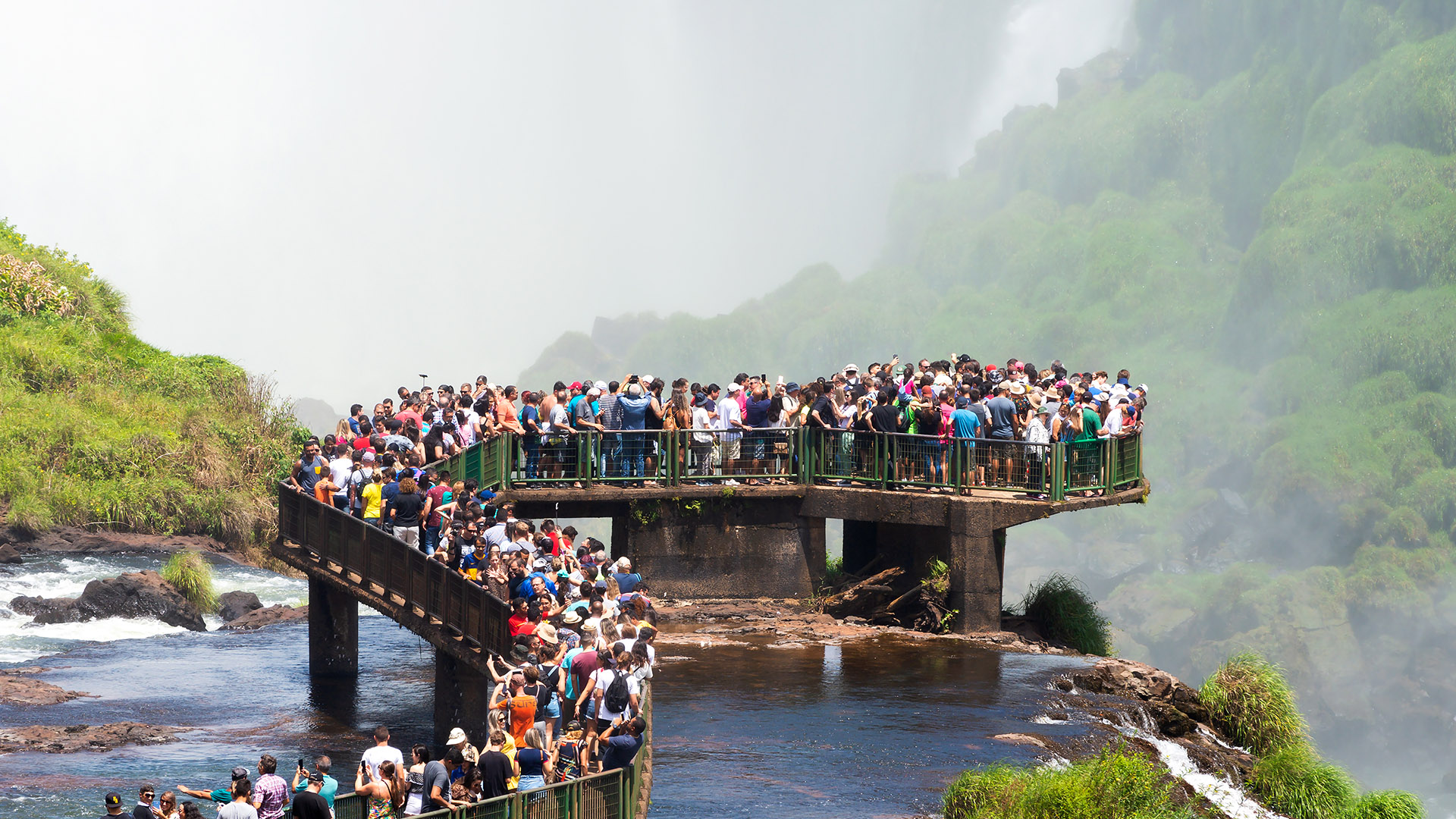February 2024
Is Travel’s Recovery a Double-Edged Sword?
An extremely important meeting took place in Switzerland last month that had nothing to do with watches, chocolate or ridiculously talented tennis players.
The World Economic Forum met to discuss the problems of the world. Given what’s happening right now, they could be there until next year…
One important subject in particular was discussed and it’s relevant to everyone who works in the travel industry.
Overtourism and how it can be assuaged.
Show more
Sydney Airport recently reported that more than 38 million passengers passed through their terminals this year. That’s just 13% shy of the annual record of 44.4 million passengers set in 2019. It prompted CEO Scott Charlton to say they were going to “draw a line under the COVID era”.
 Yet while all this is fantastic news for the tour operators, hotels, travel companies, cruise lines and destinations that survive on the influx of tourists, there is a potential downside.
Yet while all this is fantastic news for the tour operators, hotels, travel companies, cruise lines and destinations that survive on the influx of tourists, there is a potential downside.
Yes, it’s great that we’re all travelling again but are we now facing a greater threat to our planet’s resources than before the pandemic?
The panel of industry leaders who gathered in Davos last month met under the catchy title: “Sorry, We’re Full: Tackling Overtourism”.
“We need to approach the issue of overtourism with a balanced view,” commented Ms Jane Sun, CEO of Trip.Com Group, who was part of the panel.
“Destinations can become overcrowded without proper management and the overall experience suffers. It’s imperative to find ways for supply and demand to grow sustainably.”
Wise words and some countries that are tourism hotspots, such as Thailand and Malaysia, are actively encouraging visitors to seek out lesser-known areas to ease the pressure on the iconic locations.
While that’s a great idea in theory, it’s going to be hard for countries like Cambodia and Peru to convince visitors that maybe they shouldn’t put Angkor Wat or Machu Picchu on their ‘must-do’ list.
The good news is that the travelling public is almost universally behind those promoting and running sustainable travel. From cruise ships to voluntourism to authentic cultural experiences, if it ain’t built sustainably then they probably won’t come.
Traveltalk asked Brett Mitchell, Managing Director of Intrepid Travel ANZ, for his thoughts on travel’s balancing act.
While recognising travel’s resurgence is crucial for revitalising economies, fostering cultural connections and reconnecting people globally, he said the impact of overtourism on local communities needed to be considered.
“Highlighting ethical travel practices through supporting locally owned businesses, respecting cultural sensitivities and off-peak season travel not only fosters sustainable tourism but allows us to get back to pre-COVID levels without negatively affecting local communities.
“As we get back into the swing of things, it’s important to reshape the industry to be more environmentally conscious by promoting responsible tourism.
“This includes promoting lesser-known destinations to combat and alleviate pressure on popular sites, implementing visitor management strategies like timed entry tickets to regulate visitor numbers and investing in sustainable tourism infrastructure.
“The travel industry can also foster community involvement in the planning and launching of educational campaigns, enforcing regulations on tourism-related businesses and promoting off-peak travel.”
So, as a new year begins, it would seem that travel is facing a thorny problem. It must be hoped that the “dark years” have given us the time and breathing space to come up with the right answers.
Show less











































